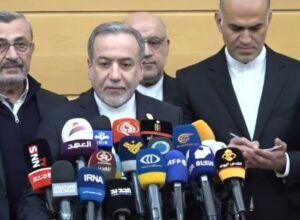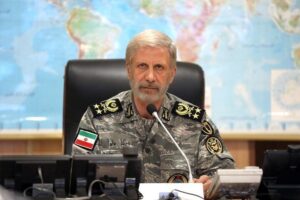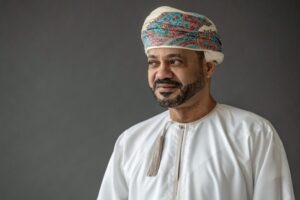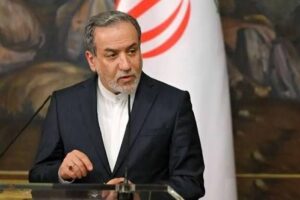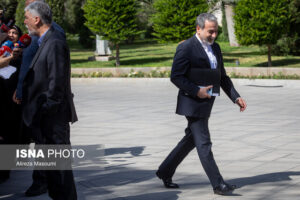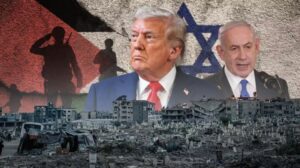Avash News: Omani Foreign Minister Badr al-Busaidi, speaking at a roundtable held during the annual “Manama Dialogue” conference organized by the International Institute for Strategic Studies (IISS) in Bahrain, said: “We want to see the resumption of talks between Iran and the United States.”
He noted that Oman had hosted five rounds of dialogue between Tehran and Washington this year, adding: “Just three days before what could have been a game-changing sixth round, Israel launched its destructive, illegal, and fatal act of aggression with bombs and missiles.”
The Omani foreign minister urged Arab states along the Persian Gulf to prioritize dialogue with Iran and other key regional players often regarded as its rivals
“Over the years, the Persian Gulf Cooperation Council has contributed to Iran’s isolation, but this trend must change,” al-Busaidi said.
He emphasized that Oman has historically played a mediating role between Tehran and other countries and expressed hope for establishing a comprehensive mechanism for dialogue among states such as Iran, Iraq, and Yemen.
Al-Busaidi explained that Iran has been perceived as a threat since the 1979 Islamic Revolution, largely due to fears that it sought to export its revolution and destabilize neighboring countries. “There was once a belief that isolating and containing Iran was the best solution. But from Oman’s perspective, that was never a real solution,” he said. He added that Iran has recently shown signs of openness, particularly in its relations with the West, and has expressed willingness to integrate into the regional order.
“Through constructive engagement with its neighbors, Iran can demonstrate that it is not a threat but a committed partner in promoting regional stability and cooperation,” al-Busaidi said.
Referring to Iran’s stance during Iraq’s invasion of Kuwait in 1990, he said: “Iran showed remarkable restraint. We interpreted this as a sign of its readiness for dialogue and supported the idea of a general and comprehensive security framework for the region. Looking back, had such a framework been established, events like the 2003 war might not have occurred—and many lives could have been saved.”
Al-Busaidi concluded that despite these opportunities, the policy of containment continued and Iran was always treated as an external threat.
“No serious efforts were made to include Iran in regional security discussions,” he said.
Regional security requires inclusion of all key players
Badr al-Busaidi said that Oman has long been calling for the establishment of a comprehensive framework for dialogue among all regional countries — including Iran, Iraq, and Yemen. He emphasized that enhancing such talks, along with the security efforts of the Persian Gulf Cooperation Council (GCC), would undoubtedly demonstrate that Iran, Iraq, and Yemen have both a legitimate and genuine share in ensuring the Persian Gulf’s security.
“Such an approach would put us in a much better position to address other regional challenges such as maritime security, drug and human trafficking, and climate change,” al-Busaidi said, adding, “How can we talk about regional security when the main players are excluded?”
The Omani foreign minister noted that inclusive dialogue fosters mutual respect, deeper economic ties, and incentives for restraint — outcomes that are unattainable under containment policies or zero-sum approaches.
He warned that preventing constructive and honest engagement with Iran and other key actors would not solve issues such as proxy wars, human suffering, or the proliferation of nuclear weapons.
“On the contrary,” he said, “exclusion and marginalization only fuel conflict, extremism, and instability — deepening all the existing challenges.”
Al-Busaidi concluded
“Only a universal and regional security framework can effectively address our shared challenges by pooling collective resources and paving the way toward a more stable and prosperous future for all our nations.

